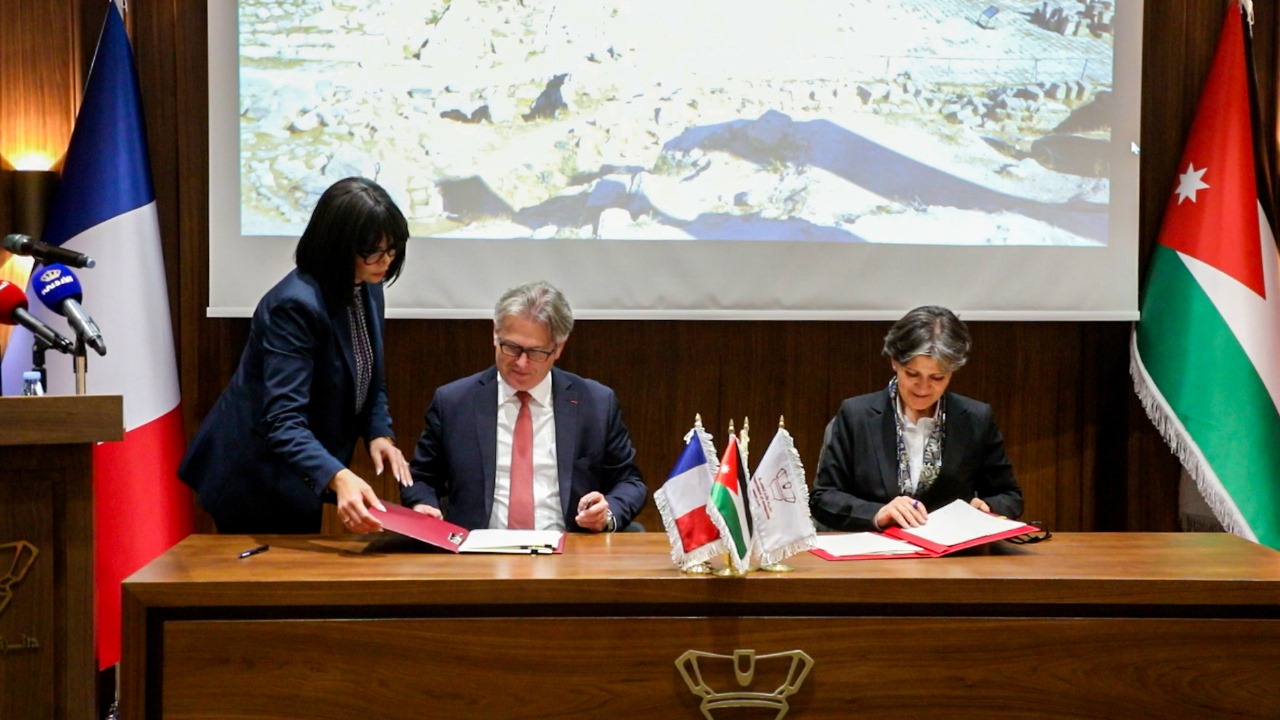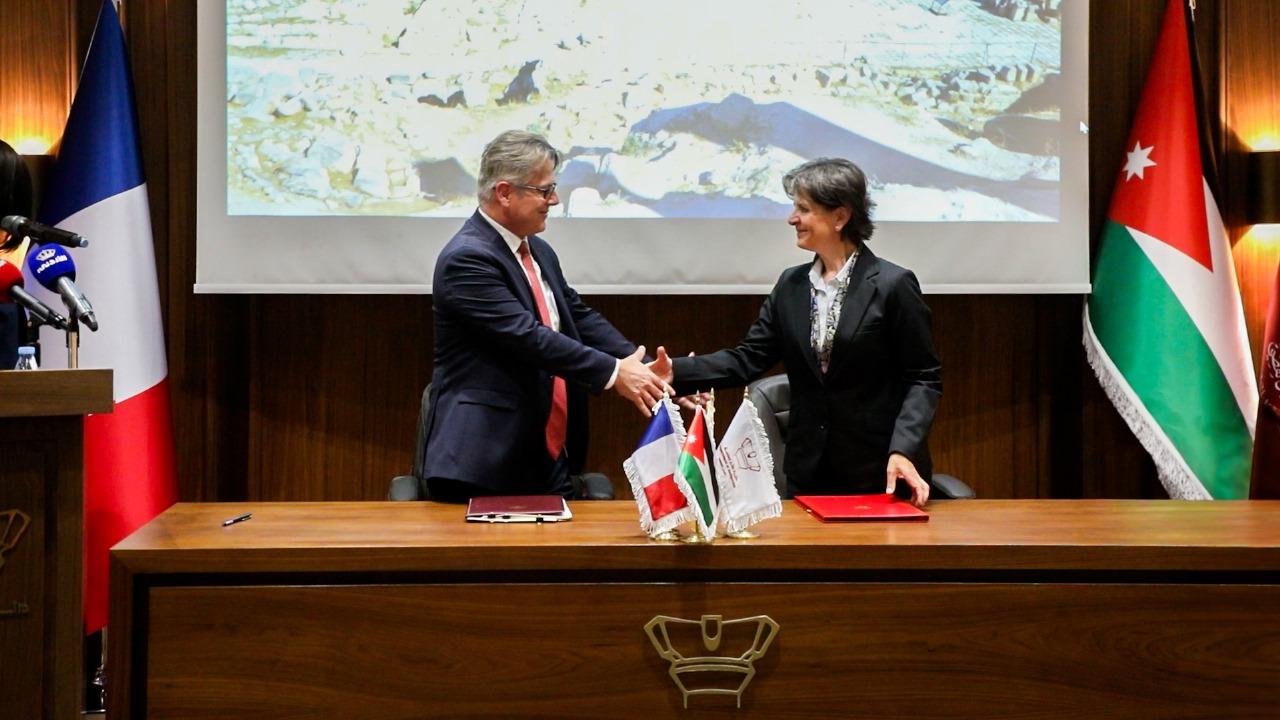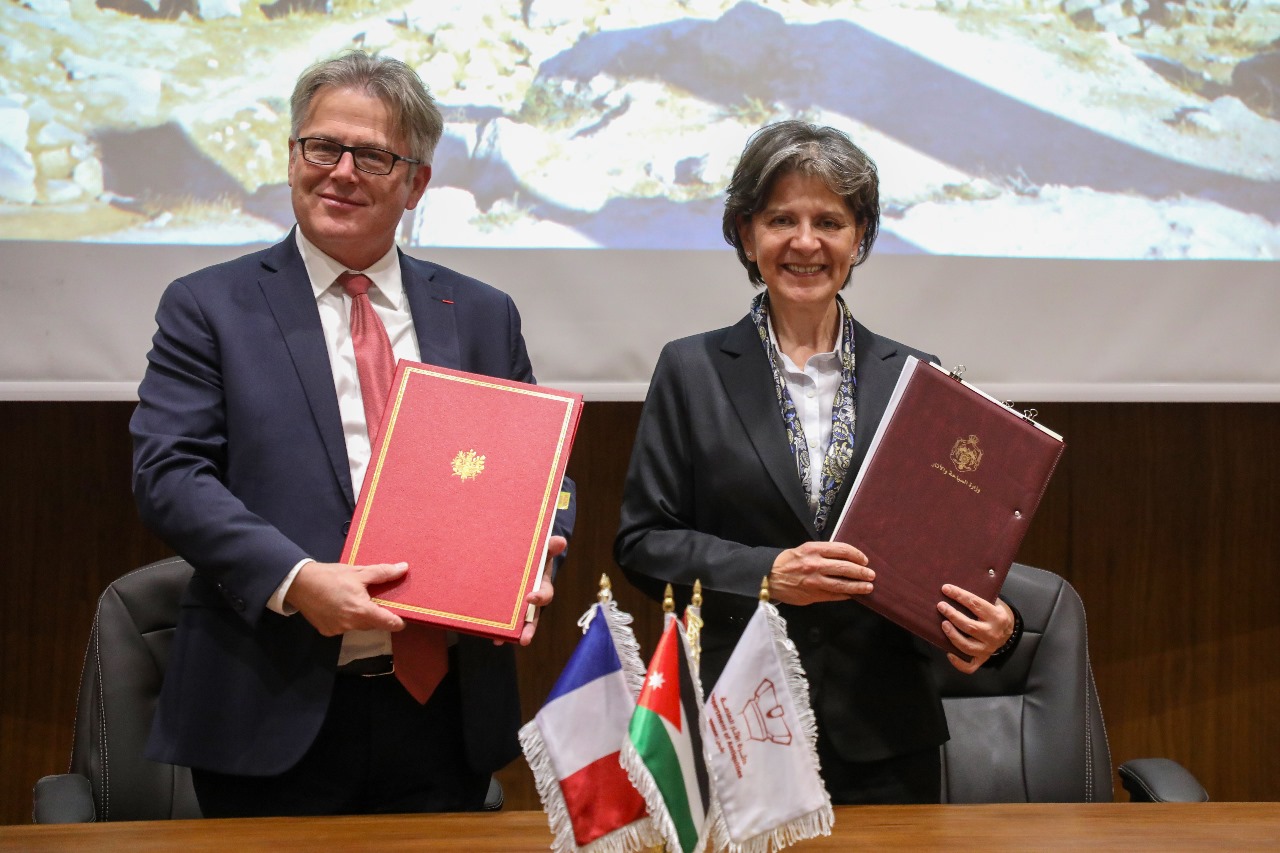The
Minister of Tourism and Antiquities, Lina Annab, on behalf of the Jordanian
government, and the French Ambassador to Jordan, Mr. Alexis Le Cour
Grandmaison, on behalf of the French Republic, signed an agreement for the
partial restoration of the staircase of the Temple of Zeus in Jerash.
اضافة اعلان
This
agreement is a direct result of the ongoing and rooted cooperation between
Jordan and France in the field of archaeology, which has been carried out by
the Department of Antiquities of Jordan and the French Institute of the Near
East (IFPO) since 1982 in areas such as excavation, restoration, and
development. This agreement is also a direct result from French President
Emmanuel Macron's visit to Jordan in 2022, during which he visited the
archaeological city of Jerash.

The
agreement focuses on the restoration of the stone staircase resembling the
original one in the northern third of the original temple platform,
reconnecting the upper terrace with the lower terrace of the temple, reviving
the paths inside the temple complex and its surrounding area, as well as
training twenty Jordanian architects and young archaeologists to equip them
with advanced restoration, maintenance, and preservation skills. This will help
strengthen the sector with the necessary expertise, particularly since Jordan
is rich in archaeological sites that require such knowledge.
Minister
of Tourism and Antiquities, Lina Annab, stated that this agreement is the fruit
of the close cooperation and strong relations between the Hashemite Kingdom of
Jordan and the French Republic in various fields. It underscores the deep
relationship between His Majesty King Abdullah II Ibin Al-Hussein and President
Emmanuel Macron. Annab emphasized that this agreement is part of the Ministry's
efforts to preserve the heritage on one hand and to develop and enhance tourism
services and products on the other.

On
his part, French Ambassador to Jordan, Mr. Alexis Le Cour Grandmaison, said
that this agreement comes to crown several decades of commitment and close
cooperation between France and Jordan at this exceptional archaeological site,
one of the most important in the Middle East. The ambassador noted that
President Emmanuel Macron’s visit to this site in December 2022 emphasized the
importance of completing the restoration program of this significant landmark.
The
total budget for this project, funded by the French government, is €884,584
over two years. The French government will contribute €420,097 for the first
year and €464,487 for the second year, while the Department of Antiquities of
Jordan will provide technical support in the amount of 100,000 Jordanian Dinars
and logistical support worth 200,000 Jordanian Dinars. The project's
implementation period will be twenty-four months from the signing of the
agreement. A steering committee has been formed to manage the project and
monitor its progress in alignment with the set goals (achievements, timeline,
and budget), which includes the Minister of Tourism and Antiquities, the French
Ambassador, the Director-General of the Department of Antiquities, the Cultural
Cooperation and Work Advisor at the French Embassy, the Director of the French
Institute of the Near East (IFPO), and the project manager appointed by IFPO.
It
is worth noting that between 1982 and 2010, several French archaeological
missions conducted excavation, maintenance, and restoration work on the Temple
of Zeus, one of the two main Roman temples in the ancient city, which consists
of a lower platform supported by a subterranean vault and an upper terrace on
which the temple stands, surrounded by columns. While the French mission
completed the restoration of the temple and vault in close cooperation with the
Department of Antiquities, the archaeological staircase connecting these two
parts had not been restored. The main goal of the restoration work is to
facilitate visitor access to the upper temple platform via the lower terrace,
providing them with the actual experience of ascending to the temple and the
visual experience of appreciating the grandeur of the building, as well as
understanding the construction techniques and the history of the site.
These
works are carried out under the supervision and monitoring of the Department of
Antiquities to ensure the sustainability and preservation of the archaeological
sites, positioning them along the tourist path. This is achieved through plans
and projects implemented by the Department to preserve and reveal Jordan's
cultural heritage, which holds significant historical value, in collaboration
with all parties involved in this field.





